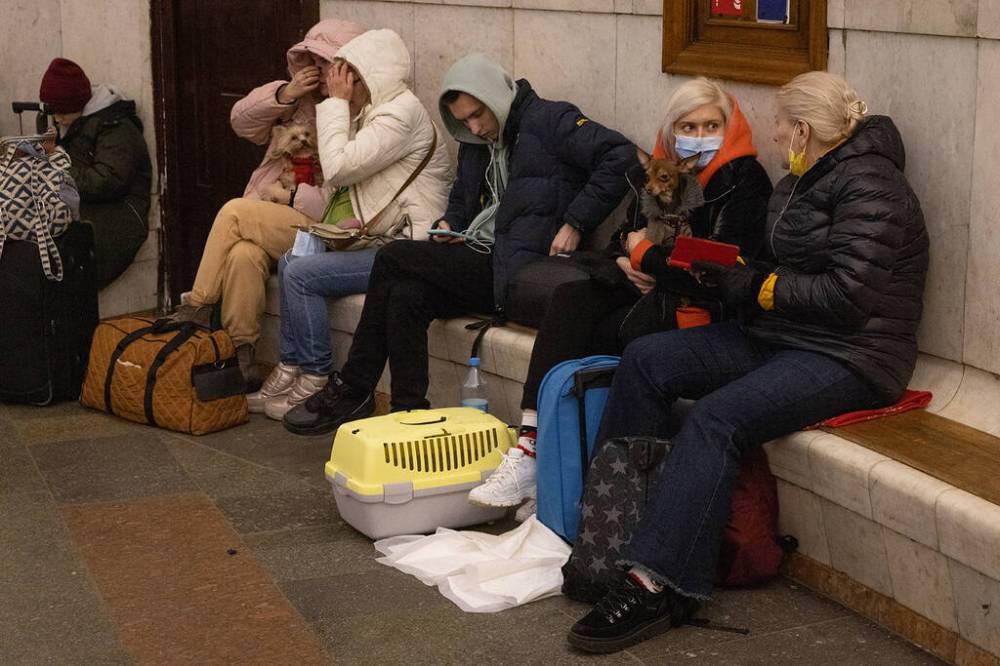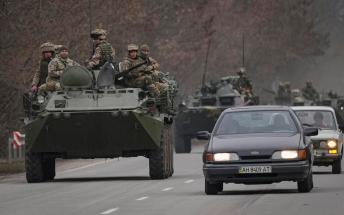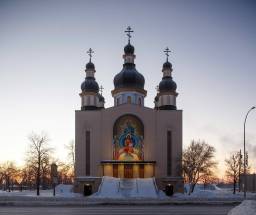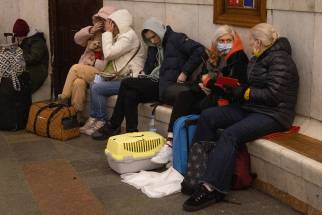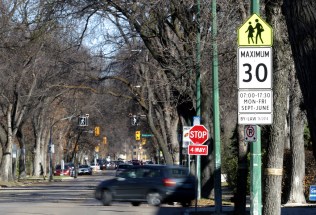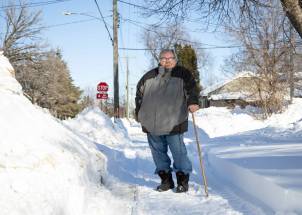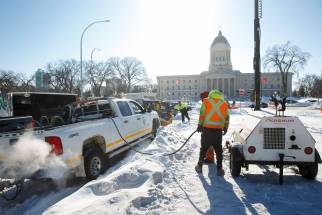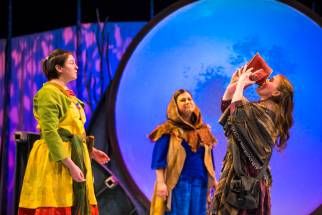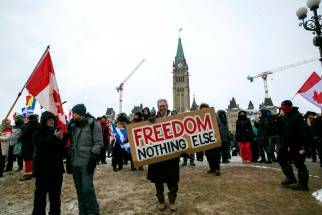Me? I was on the couch… you? We’re likely to remember where we were, what we were doing when Vladimir Putin dispensed with post-Second World War geopolitical order
Read this article for free:
or
Already have an account? Log in here »
To continue reading, please subscribe:
Monthly Digital Subscription
$0 for the first 4 weeks*
- Enjoy unlimited reading on winnipegfreepress.com
- Read the E-Edition, our digital replica newspaper
- Access News Break, our award-winning app
- Play interactive puzzles
*No charge for 4 weeks then price increases to the regular rate of $19.00 plus GST every four weeks. Offer available to new and qualified returning subscribers only. Cancel any time.
Monthly Digital Subscription
$4.75/week*
- Enjoy unlimited reading on winnipegfreepress.com
- Read the E-Edition, our digital replica newspaper
- Access News Break, our award-winning app
- Play interactive puzzles
*Billed as $19 plus GST every four weeks. Cancel any time.
To continue reading, please subscribe:
Add Free Press access to your Brandon Sun subscription for only an additional
$1 for the first 4 weeks*
*Your next subscription payment will increase by $1.00 and you will be charged $16.99 plus GST for four weeks. After four weeks, your payment will increase to $23.99 plus GST every four weeks.
Read unlimited articles for free today:
or
Already have an account? Log in here »
Hey there, time traveller!
This article was published 24/02/2022 (1383 days ago), so information in it may no longer be current.
As a child, I learned history through books and movies but lived it vicariously through the eyes of my father, gathering up all his where-were-you-whens with an insatiable hunger. Every time I learned about an event that had shaped the course of the world, my young mind did a hasty calculation and, having verified he’d been alive at the time, I’d ask him the question.
Where was he on May 8, 1945, when news broke that Germany had made an unconditional surrender? He was young, almost too young to remember, except in fragmented pictures: the kitchen of his little house in small-town Michigan, the hem of his mother’s dress, newscasters declaring victory on the radio, people running down the street in jubilation.
Where was he on Nov. 22, 1963, when John F. Kennedy was assassinated? In a classroom at the American university where he was teaching, finishing up a lecture. He went home through stunned streets and yelled at the dog; my mother, seeing this, snapped back that the dog didn’t do it, so he sat and wept and felt the world he knew fall apart.
By the time I was eight years old, I had committed most of these stories to memory. None were dramatic. None of them had my father at the heart of what was the most violent or important or transforming. He was, like many folks in North America and all of those who are lucky, only a second-hand witness to the greatest machinations of geopolitical trauma.
So was I. Born in Canada to a white American family, grown up through the 1980s and ‘90s, I was, like so many here, a child of an uncommon peace, one that was bought and paid for by the suffering of others. That was easy enough to forget or never even to know, outside of the where-were-we-when moments that cut into our lives mostly through television screens.
Born in Canada to a white American family, grown up through the 1980s and ‘90s, I was, like so many here, a child of an uncommon peace, one that was bought and paid for by the suffering of others.
Now we stand at one of those moments again, watching in real time the last agonal breath of that uncommon peace.
It’s all around us now, images of a war that, just hours before, even some experts thought probably wouldn’t quite happen. Here is a livestream of Kyiv’s Maidan Square, empty as air-raid sirens whine and the dull booms of a devastating violence are heard from somewhere — an airport? A military installation? — beyond the camera’s reach.
Videos taken in deep subways of civilians huddling anxiously for safety. Videos of streets jammed with vehicles, filled with people fleeing Ukraine’s capital city. Videos from Kharkiv, where missiles struck civilian buildings, but also from Vladimir Putin’s hometown of St. Petersburg, where Russians take the streets in protest of their leader’s war; some hope.
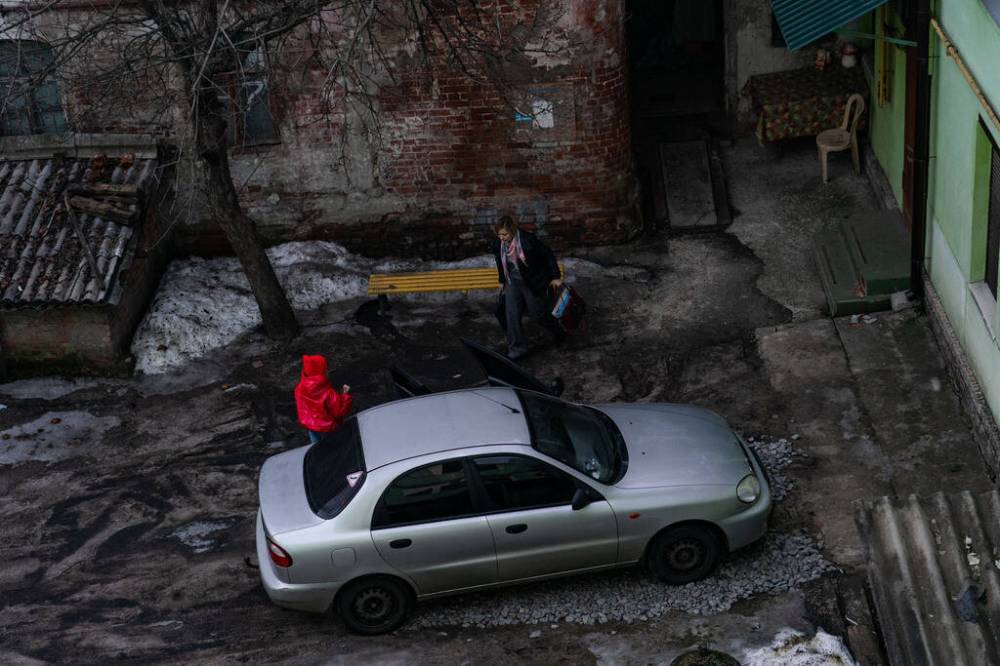
There’s too much of everything, now, and it’s hard to know what anything means, or even if it’s real. On TikTok, a video of a Russian soldier laughing as he parachutes from the sky goes viral: “Bro is recording an invasion,” someone comments, but it turns out the video is actually from what appears to be a training exercise in August 2015.
On Twitter, journalist Daniel Dale points out that there are videos circulating on social media that are taken from old wars, but labelled as belonging to the new. I start to doubt everything I see that doesn’t come from journalists I trust. The video that said it was of Russian helicopters — one shot down — attacking an airport near Kyiv? Is that real?
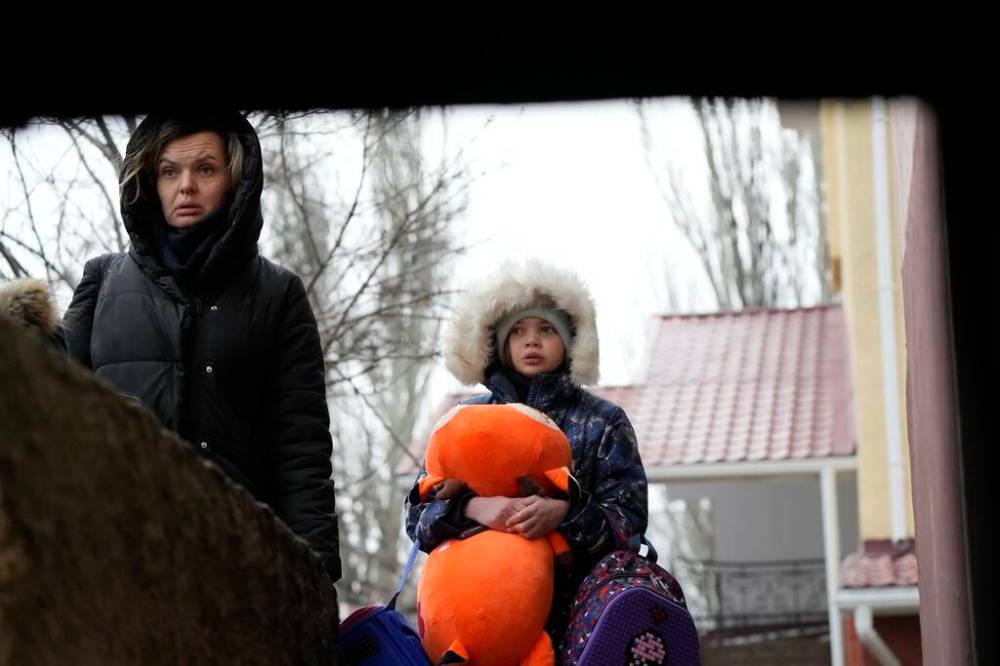
I wonder if it was better when news from the front took days to arrive, or even, as communications technology grew through the 20th century, when it came within hours. Was it better when all the content we consumed was filtered, when we weren’t being bombarded with images of unknown provenance, when we didn’t have a constant real-time view of the world?
I wonder if it was better when news from the front took days to arrive, or even, as communications technology grew through the 20th century, when it came within hours.
Once, someone made an observation that as traumatizing as 9/11 was to witness even from a safe distance, it would have been immeasurably worse now, with the ubiquity of cellphones and livestreams. We all would have seen things that could never be extricated from our minds. We all would have had eyes in the towers as they burned and, then, as they fell.

Nobody knows what will happen in the days or weeks or months to come. But if this invasion continues and escalates, then we will all see war in ways those of us who haven’t lived through one have never quite seen before. And war isn’t something people are designed to endure in body or in spirit; even at a distance, we will need to take care of each other.
That is especially true in Manitoba, where nearly one in six people identifies as Ukrainian-Canadian. Our communities are inextricably tied to those that are now facing an existential threat. If there’s nothing we can do to stop the war, then all we can do is channel our worry into supporting all those who fear for their families, their hometowns, their friends.
Our communities are inextricably tied to those that are now facing an existential threat. If there’s nothing we can do to stop the war, then all we can do is channel our worry into supporting all those who fear for their families, their hometowns, their friends.
That community is strong. It has survived many storms. Someday, it will tell the story of how this, too, was endured.
And someday, maybe a little girl will ask me where-was-I-when the Russian bombs started falling on Ukraine, and I will say: I was nowhere. I was nobody. I was on my couch tapping out sentences to a column about something else entirely. Watching reruns of Mad Men, a show that was so self-consciously a vicarious window on history, and starting to fall asleep.
Worried, I will tell her. I was worried. Worried about selling my condo. Worried about my mother in hospital. Worried about my job, my friends, my future, the appointment I had on Friday, the appointment I’d just realized that I’d forgotten to make for Thursday, the storage boxes I had to sort through and what would happen with the pandemic.
Then, in an instant, someone I barely knew texted me to say “so World War Three’s starting, huh.” So I picked up my phone and watched as people fled Kyiv and soldiers seized airports and Ukraine’s president asked his people to take up weapons to fight the war. I watched until I didn’t know which of my worries, if any, would still matter at all.
melissa.martin@freepress.mb.ca
Our newsroom depends on a growing audience of readers to power our journalism. If you are not a paid reader, please consider becoming a subscriber.
Our newsroom depends on its audience of readers to power our journalism. Thank you for your support.

